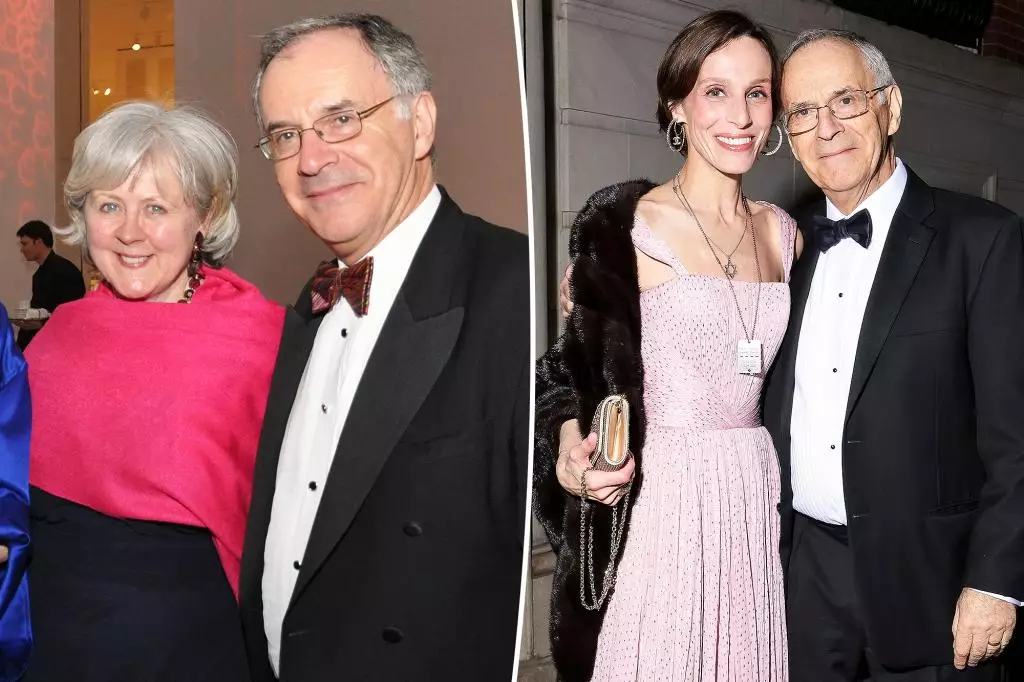The realm of high society often masks tales of intrigue and turbulence, yet few stories embody this better than the tumultuous romance between Anya Gillinson and Sir Clive Gillinson, a celebrated figure in the musical world as the director of Carnegie Hall. Anya’s new memoir, “Dreaming In Russian”, candidly unveils the layers of their relationship and offers a brave interrogation of morality, love, and scandal that resonates deeply with contemporary societal norms.
Their relationship began in an unconventional setting — a formal dinner where Anya first encountered Clive. Despite his significant age difference and the fact that he was married with three children, her attraction burned fervently, illuminating a path leading to chaos. Anya’s navigation through these murky waters challenges traditional notions of fidelity and fidelity’s restraints. She remarks on her initial discovery of Clive’s personal life, suggesting that knowledge of his existing commitments only heightened her interest. The ensuing affair, which she describes as a violation of societal expectations, unfolded when Clive’s wife was out of the country, highlighting an underlying sentimentality mixed with reckless abandon.
As their relationship flourished, Anya confronted the practical implications of their shared choices. “You’re going to be my disaster,” Clive allegedly proclaimed, foreshadowing the tumultuous journey they would undertake. Anya’s reflection on their love as inherently “immoral” and even “illegal in some jurisdictions” invites readers to reconsider the conventional moral compass when faced with the intoxicating reality of love. Here lies an essential seed for discussion — does love excuse unethical actions, and can one’s emotional impulses override the structured morality society upholds?
Anya’s perspective extends beyond personal romance to a broader commentary on marriage and relationships. Her description of her own previous union hints at a fraying connection held together only by the weight of routine. This is a poignant observation that echoes a modern reality where many marriages may linger in silence rather than vibrancy, producing a disturbing juxtaposition between societal expectations and personal fulfillment.
“Dreaming In Russian” does more than recount a scandal; it offers a mirror reflecting contemporary struggles with love against the backdrop of expectation. Anya’s openness traverses more than her romantic journey; it also reveals chapters of her life, including her upbringing in Russia and the personal trauma she faced with her father’s death. The multifaceted narrative she weaves contributes to a richer understanding of her motivations and the stakes involved in her choices.
Ultimately, Anya Gillinson’s account serves as a compelling exploration of the complex interplay between love, choice, and societal norms, urging readers to grapple with the notion that moral clarity can often be elusive in the face of human emotion. The fallout from her and Clive’s decisions extends to familial bonds and public perception, provoking thoughts about the cost of pursuing passion at the expense of conventional morality. It leaves one pondering the age-old question: can love truly conquer all, even if it leads down scandalous paths?

Leave a Reply